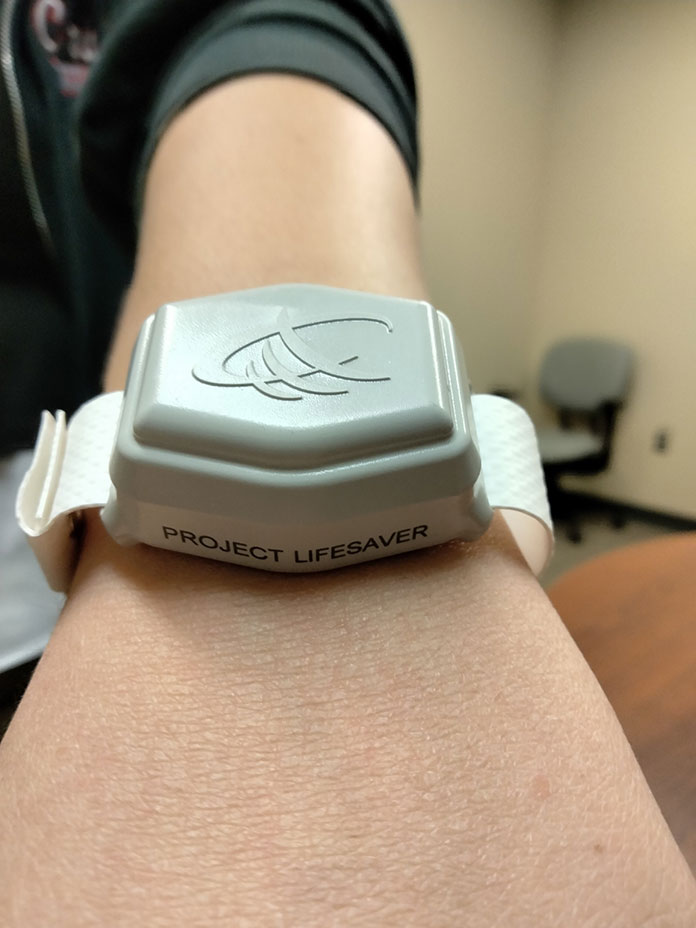
MONMOUTH COUNTY – The Monmouth County Sheriff’s Office is recognizing National Alzheimer’s Disease Awareness Month during November, but any time of year is a good time to sign up for their Project Lifesaver Program.
The program is dedicated to locating individuals with Alzheimer’s disease and uses radio signals to track them. It is also available for people with autism if they become missing.
“Project Lifesaver is a critical, lifesaving tool for families who have loved ones with a condition or illness that causes them to wander,” Sheriff Shaun Golden said. “It can benefit them greatly by the safety and security provided through participation in the Project Lifesaver program.”
The Monmouth County Sheriff’s Office has responded to 25 Project Lifesaver activations since the beginning of 2021.
In 2003, the project began as a partnership between the Monmouth County Sheriff’s Office and the Monmouth County Office on Aging. It was originally funded through a grant from the Older Americans Act. It was then expanded in 2007 to include people with autism. The Monmouth County Department of Human Services joined the partnership and secured funding with grants from New Jersey Natural Gas, Jersey Central Power and Light Company and a grant from the State of New Jersey.
Currently, there are 178 individuals on the Project Lifesaver program in Monmouth County – 42 adults and 136 juveniles.

The Monmouth County Sheriff’s Office states how each individual wears a different radio transmitter with a unique frequency. If they become missing, the sheriff’s office has ten receivers with which to track the missing person. The radio receiver has a range of one mile on the ground, one quarter mile when roof mounted and five to seven miles in a helicopter.
Applications for enrollment in Project Lifesaver for those with Alzheimer’s disease are processed through the Monmouth County Office on Aging. Once approved, the applications are sent to the Monmouth County Sheriff’s Office where personnel go to the home of the individual, teach the family about Project Lifesaver and install the wristlet (transmitter). Then personnel will return in either 30 or 60 days (depending on the model of the transmitter) to change the batteries and check on the condition of the client.
If they are reported missing, officers will immediately respond with the Project Lifesaver receivers to locate them.
The program is in all 50 states and has performed 3,840 rescues, according to Project Lifesaver.
“Even though we recognize National Alzheimer’s Disease Awareness Month throughout November, it’s vital to note that the law enforcement community is committed to acknowledging this disease year-round in an effort to maintain the safety of individuals and spare families a lot of grief when locating a loved one who goes missing,” Golden said.
For more information about the Project Lifesaver Program in Monmouth County, visit mcsonj.org/community-outreach/project-lifesaver.







